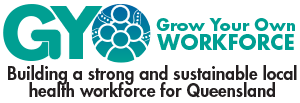Torres and Cape Hospital
and Health Service
- Outside-in
- Health Sector
- Thursday Island, Torres Strait

The Challenge
The Thursday Island Renal Dialysis Unit has seen a significant expansion in services in recent years. A new dialysis service commenced in March 2015 providing local access to this critical health service for people on Thursday Island and surrounding islands who are living with chronic kidney disease.
Torres and Cape Hospital and Health Service sought to develop a local workforce solution that supports the delivery of high-quality, culturally appropriate allied health services for clients of the Thursday Island Renal Dialysis Unit.
The Solution
To identify a key member of the renal team with the capacity for role expansion to include allied health clinical support tasks. This solution capitalises on the capabilities of the local workforce through investing in upskilling.
Implementation
The health service identified the needs of clients accessing the renal service, with particular regard to allied health services including dietetics, podiatry, occupational therapy and physiotherapy clinical care. The team recognised that some of this care could be delivered safely and effectively by a support worker with training in the relevant assessment and treatment techniques. In larger urban services an Allied Health Assistant would undertake these tasks but this skill set is scarce in remote areas. The solution lay in looking at the capabilities they already had in their renal and allied health teams. The Aboriginal and Torres Strait Islander Health Worker role was identified as appropriate for role expansion to include specific dietetics, podiatry, physiotherapy and occupational therapy tasks and a trial has commenced. A program of work-place based training and competency assessment will be implemented for this employee. When the program is fully implemented the Health Worker will use these additional skills to deliver a broader range of services to clients. The strategy supports the cultural appropriateness of the allied health services and will improve the availability of these critical clinical services for clients.
Organisational strategies
- Collaboration between the renal dialysis service Nurse Unit Manager, Director of Allied Health and allied health professionals has enabled development of an innovative role redesign.
- Building staff capacity through training in delegation practices and process.
- Engagement with staff members throughout the scoping phase of the change.
- All work on the trial has been underpinned by a shared focus on the needs of clients and a drive to fully utilise the capabilities of all members of the healthcare team in this remote area.
Program design strategies
The program design process is in progress and will include the following:
- task competencies and clinical governance resources published by the Allied Health Professions’ Office of Queensland support the service model and upskilling of the Health Worker in key delegated tasks
- theoretical and practical training components that are contextualised for the renal service setting and delivered onsite by the senior podiatrist, dietitian, physiotherapist and occupational therapist to ensure the learning is strongly applied and relevant
- a supervision and support process that ensures the Health Worker can continue to improve and extend skills.
Results
The anticipated results are:
- The Health Worker completes training in key podiatry, dietetics, physiotherapy and occupational therapy clinical tasks.
- The expanded skill set of the Health Worker will be regarded positively by other members of the team and clients.
- Investing in a local worker will capitalise on existing knowledge and experience of the service and community.
Lessons Learned
- Understand the needs of clients and think flexibly about the capacity of your team. Don’t be constrained by what is done everywhere else if an effective local workforce solution can be devised.
- Co-design of role expansion with the workers involved, managers, and clinical supervisors is key to successful development of this strategy. So ensure they are engaged from the outset.
- Ensure that staff responsible for training and delegating clinical tasks are engaged from the outset and have the skills to provide these functions.
- There are a large range of existing resources that can be adopted or adapted to support teams to efficiently implement upskilling strategies including task competencies relevant to a range of allied health professions, delegation frameworks and training resources. Teams do not need to ‘start from scratch’.
Links
- Queensland Health allied health delegation resources: https://www.health.qld.gov.au/ahwac/html/ahassist
REQUIREMENTS FOR
REPLICATION
Do you…
- have Aboriginal and Torres Strait Islander Health Worker or similar clinical roles that have the capacity to provide a greater scope of services for clients?
- have Aboriginal and Torres Strait Islander Health Workers with the drive and commitment to extend their skills to provide a wider range of service to the community?
- have allied health professionals with expertise in designing and implementing delegation models of care and delivering competency-based training?
Can you…
- get management support for role expansion to maximise the value derived from the existing workforce in the team?
- implement a delegation model of care including appropriate training, support and supervision.
CONSIDERATIONS FOR PROGRAM SCALING
Do you…
- have staff capacity to provide training and supervision to support employees to maintain competence in the delegated clinical tasks?
- have a local allied heath workforce with the skills to lead the development and implementation of a delegation model of care?
POTENTIAL RISKS
What if…
- agreement cannot be secured to expand existing roles to include allied health clinical support tasks?
- too many tasks are allocated, raising expectations that are too high?
- the level and quality of the workplace-based training is inadequate?
- staff do not have the capacity or capability to provide quality, practical training or supervision?
- staff turnover interrupts the work-place based training?
